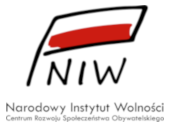SPECIAL REPORTS
Date: 20 August 2020
Can Western Balkans Serve as Role Model of Integration for Eastern Partnership?
The article is a follow-up to the text by the Jagiellonian Club Przez Bałkany do Brukseli? Przyszłość Partnerstwa Wschodniego [Through the Balkans to Brussels? The future of the Eastern Partnership] whose authors compared the potential of the Western Balkans and the three outstanding Eastern Partnership nations.
- New EU enlargements were vital for the bloc’s efforts to build a security zone throughout the continent.
- With the sunset of the Cold War era, ten Central and Eastern European nations – including Poland – joined the club in 2004 whilst 2007 marked the accession of Bulgaria and Romania.
- Those outside the European Union are the Eastern Partnership states and the Western Balkan nations – yet except for Croatia that became its member state in 2013.
- The pace of EU integration varies, whether these be for political initiatives or any actions between them.
- Cooperation efforts between the listed nations of the Eastern Partnership and the Western Balkans might push Georgia, Moldova, and Ukraine onto the path of expanded integration with the bloc.
- There are just some minor differences in issues like the rule of law or economic development between these two groups of nations.
- Political or economic ties between the countries of the Eastern Partnership and those in the Western Balkans are now quite modest.
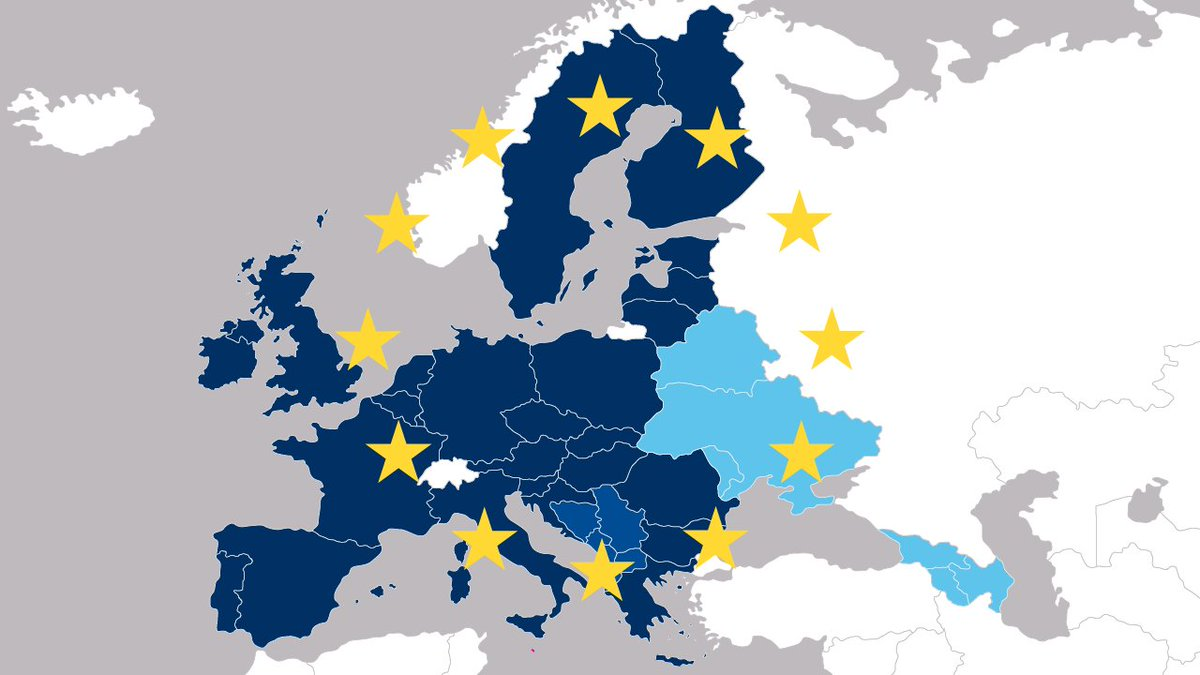
It is worthwhile tackling the very core of the Eastern Partnership, a joint initiative for countries that aspire to move closer to the European Union. Singling out just three Eastern Partnership nations to pinpoint them to the process of heated EU integration –– also through a dialogue with the Western Balkan countries –– reveals somewhat a “political burnout,” or what exactly happened to the scheme bringing together the EU and its Eastern European neighbors. At issue are distinct attitudes that Eastern states exhibit toward the European Union. So far, Georgia, Moldova, and Ukraine have inked association agreements with Brussels whilst their nations are keen to integrate with the bloc, thus the initiative as it stands –– with states that share no mutual aspirations –– seems little satisfactory for their ongoing pursuits. Those in another basket are Belarus, Armenia, and Azerbaijan, with none of them having EU-related ambitions or having dropped them at some moment. Whilst Armenia and Belarus are part of the Eurasian Economic Community, a bloc that strives for close cooperation with Russia, Armenia signed also the Partnership and Cooperation Agreement with the European Union in a move that allows the country to deepen ties with Brussels. Yet with Moscow’s military aid in the ongoing feud over Nagorno-Karabakh with neighboring Armenia, Yerevan is believed to remain under a political umbrella of Russia. With its authoritarian rules, Azerbaijan is not zealous to integrate with the EU. Having developed crude-based financial independence, cash incentives from Brussels are little motivating for Baku to push for democratic reforms across the country.
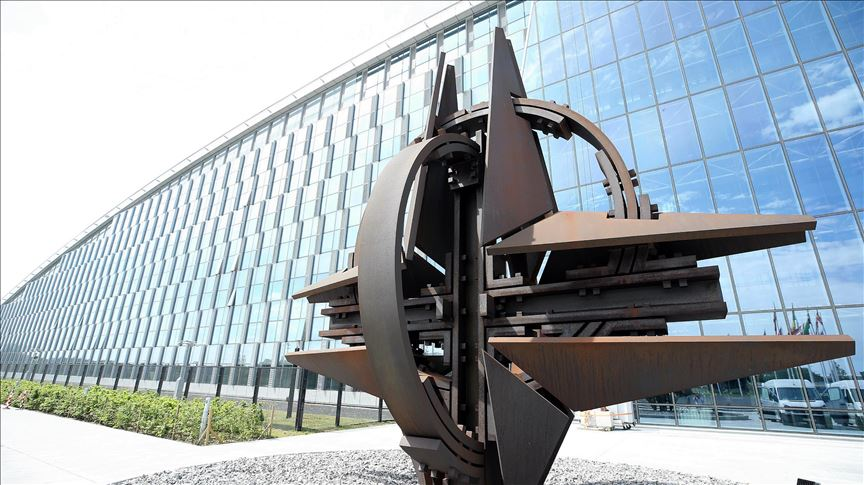
A comparison of the Western Balkan nations as well as Georgia, Moldova, and Ukraine and their respective ties with NATO
Though the article gives an insight into the EU integration efforts of both regions, it is worthwhile discussing a Euro-Atlantic cooperation framework between the Western Balkans and the Eastern Partnership as a whole. As for the EU’s biggest-ever enlargement in 2004, the NATO integration process ran in parallel to that with the European Union. Except for Cyprus and Malta, other countries, including Bulgaria and Romania, joined the North Atlantic Alliance. Yet a set of political processes within both integration blocs differ in their dynamics. Some Western Balkan states –– Albania, Montenegro, and North Macedonia –– are NATO nations. As for the countries of the Eastern Partnership, neither their nations nor the military bloc exhibits a political will to integrate one with another. At the NATO summit in Bucharest in April 2008, at issue was to whether allow Georgia and Ukraine to join the club. France and Germany balked at this idea, both fearful of worse ties with Russia. In August later that year, the Georgia-Russia war broke out, freezing Tbilisi’s prospects of NATO membership for many years to come. In Moldova, a poll found that roughly 15 percent of people are in favor of joining NATO whilst 45 percent of respondents are reluctant to see their country join the North Atlantic Alliance[1].
Like Ukraine, Moldova is a neutral state. What happened in Ukraine is somewhat particular; by annexing Crimea in 2014, Russia violated the whole country’s neutrality. With no prospect of NATO membership, Kyiv is yet cooperating closely with the military bloc, also to offer new weapons to its national army. Ukraine’s stepping into NATO seems unlikely, posing a grave threat of an ever-deeper spat with Russia. Moldova, however, cannot join the transatlantic military bloc notably amidst a frozen conflict in the Russian-controlled region of Transnistria.
As for the Eastern Partnership nations, their successful attempts to join the EU will yet not come hand in hand with the bid for NATO integration. Irking Russia, efforts toward EU integration touch upon essentially political and economic ties. But possibly Russia is not as keen to counteract EU integration as it is for NATO-related pursuits. The Kremlin is fearful of more robust ties with the European Union and its weaker economic and political influence, and of being pushed to a difficult negotiating position with countries protected by EU-wide rules and regulations. From a Russian perspective, moving toward NATO is far more dangerous, with hostile military infrastructure being possibly installed right off the Russian border. Belarus, Moldova, Ukraine, and South Caucasian states serve as a buffer zone that separates Russia and NATO countries.
Moscow is lodging some claims across the Western Balkans, too, yet its impact is far more limited. Moscow made a failed, albeit determined effort to hinder Montenegrin and North Macedonian pursuits toward NATO membership, especially by what it staged in Podgorica. In October 2016, an attempt was made to overthrow the Montenegrin government in a bid to obstruct the country’s NATO ambitions. In the North Macedonian naming dispute, Russia offered support to the political parties that scoffed at the Skopje-Athens deal, seeking to block North Macedonia’s path to the North Atlantic Alliance. Greece refused to recognize the name “Republic of Macedonia,” blocking Skopje’s talks with both NATO and the European Union. Only after did Greece and North Macedonia arrive at a name-changing compromise, the talks won a fresh momentum.
There are other non-NATO Western Balkan nations: Bosnia and Herzegovina, Kosovo, and Serbia. Both Serbia and Republika Srpska –– the latter being one of the two entities of Bosnia and Herzegovina –– rebuke NATO integration, opting for military ties with Russia instead. Back in time, during the NATO bombing in Serbia in 1999, Russia offered diplomatic aid and military support to Belgrade, also by carrying out joint drills or dispatching military hardware to the Serbian army. What is more, some NATO states like Greece, Spain, or Romania still do not recognize Kosovo as an independent state.
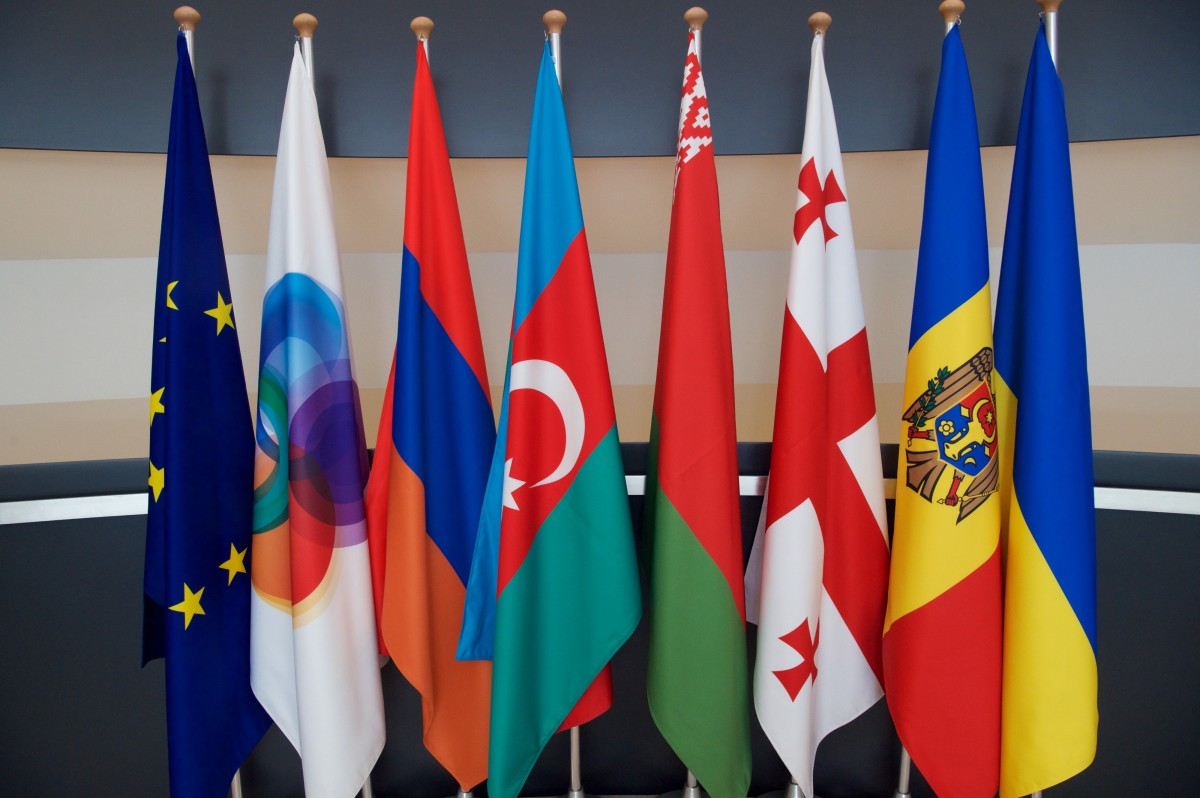
EU and NATO integration prospects for the Western Balkans and the Eastern Partnership
What differs these two groups of nations is their status in relations with the European Union. An enclave within the European Union, the Western Balkan region is home to some 21 million people. Upon satisfying a list of relevant requirements, they all have prospects to integrate with the European Union yet this triggers no “automatism” in their accession process. The pace of EU integration depends on both efforts made by Western Balkan nations and on what is taking place within the European Union. Just to quote here when France formally vetoed opening negotiations with North Macedonia and Albania in 2019 despite these two’s having met their obligations as imposed by the European Commission. Albania moved forward with EU-oriented justice reforms while North Macedonia settled the naming dispute with Greece.
Montenegro and Serbia, both being most advanced in the whole EU negotiating process, have yet bleak prospects of joining the bloc. Serbia’s becoming a EU member hinges much on whether the country gets on well with Kosovo, its former province. Serbian officials, with Aleksandar Vučić at the helm, have a tough nut to crack: any deal with Kosovo would boil down to its recognition as an independent state in what might exasperate many Serbian residents. Also, Serbian authorities are aware of one thing: by blocking the negotiating process, they may bring to a halt the whole negotiating efforts with the EU. In what could break the stalemate, Serbia could create autonomy for the Serb population within the borders of the Republic of Kosovo yet this was met with protest from the government in Pristina, fearful of mounting breakaway efforts from Kosovo Serbs. Short-term prospects for the fate of the European Union thus do not paint in bright colors. Tormented by post-Brexit internal conundrum and the Covid-19 pandemic, the European Union is unlikely to accept new nations throughout this decade.
What seems is that a lingered accession process for the European Union could stand as a right moment for Georgia, Moldova, and Ukraine. If their ties with the EU grow and if these nations significantly “absorb” the bloc’s acquis within a pile of association agreements, it might seem right to incorporate them into the EU accession process. The Russian Federation is now the top factor obstructing that, though. Democratic institutions develop evenly in both groups, and so do efforts to defend human rights or counteract corruption. As for fighting bribery, Georgia has taken the lead amongst countries of both the Western Balkans and the Eastern Partnership. In 2019, it scored 56 points out of 100 on the 2019 Corruption Perception Index on a scale of 0 (highly corrupt) to 100 (very clean).
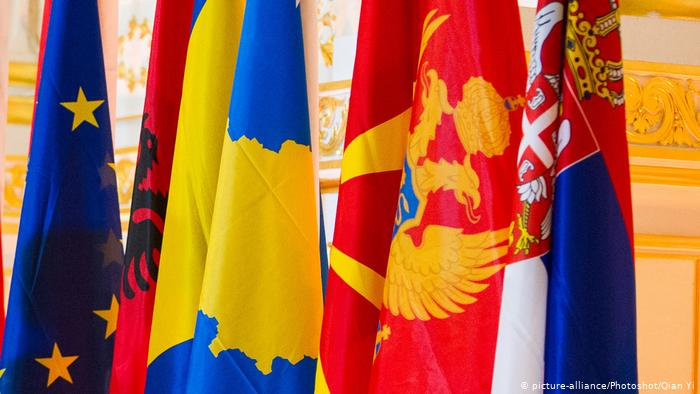
What’s turbulent for both regions’ EU integration process
Democratic shifts within the Western Balkans and the Eastern Partnership stemmed from their prospects of integrating with the European Union. For the Western Balkan nations, this notably included the launching of accession talks. In turn, Brussels’s influence on the Eastern Partnership states focused at some stage on allowing visa-free access for some of the group’s nations. However, what lags the whole process of the joining the European Union is their poor prospect to become a member of the bloc.
A group of outstanding Eastern Partnership states also followed some policies that undermined their negotiating position. What Moldova’s pro-European coalition did in the country after toppling the government of the Party of Communists of the Republic of Moldova in 2009 was rather superficial and aimed at getting some EU funding. The Filat-Plahotniuc political duopoly was entangled in a raft of fraud scandals, including Moldova’s biggest-ever theft of $1 billion from the state budget back in 2015[2]. Vlad Filat was sentenced to nine years in jail on corruption charges[3]. The Party of Socialists of the Republic of Moldova won the 2019 poll and after being in a months-long coalition with ACUM, a pro-European alliance, they parted ways, with the former party seeking a multi-vector policy. Though Moldova is formally affiliated with the EU, its biggest trading partner, the incumbent government is pursuing a pro-Russian policy and does not openly call for changing political blocs due to relatively high support for EU integration amongst Moldovan residents. What severely bars Moldova’s path toward the European Union is the Transnistria conundrum. Only by reintegrating the breakaway region on terms that suit the Moldovan government could Chisinau make a step toward plausible accession talks with the EU.
Of all Eastern Partnership nations, Georgia holds the lead in adopting democratic reforms. The EU-Georgia Association Agreement, which fully entered into force in 2016, has a similar structure to the Stabilisation and Association Agreement that pertains to the Western Balkans –– as far as their EU acquis adoption is concerned. Yet with its location right off Russia and some unsettled disputes with Abkhazia and South Ossetia, Georgia cannot be considered a candidate country, notably for geopolitical issues.
Likewise, Ukraine is embroiled in an all-out conflict with the Russian Federation. Even if to assume what the Donbas war is not a direct dispute with Russia –– as Moscow claims Russian servicemen are not part of the military theater, any peace deals in the already-occupied Crimean peninsula will be available solely upon the Kremlin’s acceptance[4].
The Western Balkan nations are now in a far more comfortable position that their Eastern Partnership peers. Whilst Russia is encroaching into their respective political affairs, the fate of EU accession will hinge on nothing but a direct dialogue between the Western Balkans and Brussels, and not on any geopolitical conditions.
Montenegro is most advanced in the EU accession mechanism. This year the European Union has opened the final chapter in the accession negotiations with Podgorica. Yet this does not mean its automatic admission into the bloc like the European Commission –– having negotiated the chapters with Montenegro –– keeps a watchful eye on how these are implemented. As some EU nations have delivered somewhat critical remarks over the latest EU enlargements, notably those of Bulgaria and Romania, Brussels will thoroughly monitor how Montenegro is doing when pushing through reforms, with lengthy EU-wide talks being held before admitting Western Balkan states into the bloc.
Serbia formally opened accession negotiations with the EU in 2014. What comes as a key sore point is its refusal to recognize Kosovo as an independent state in a move that should arise from talks between these two, according to the European Union[5]. The biggest Western Balkan nation, Serbia seeks to hold the lead throughout the region. In 2019, it signed a free-trade agreement with the Russian-led Eurasian Economic Union (EES), despite its claims it was nothing but an ad-hoc measure, following a slowdown in the EU integration process. In doing so, Serbia seems to force Brussels to speed up accession talks to allow Belgrade to join the club quite soon.
Both at the dawn of their negotiating process, Albania and North Macedonia are unlikely to get any promise of prompt EU membership from Brussels whilst the pace at which they add reforms to domains like the economy, governance, or justice will be confronted with how the Eastern Partnership states develop as a whole.
Conclusions
With geopolitical conditions, it is challenging to make a comparative analysis of the two regions –– both dramatically different one from another, with few mutual cooperation mechanisms. Yet they differ just slightly in internal conditions, democratization level in state institutions, justice reforms, or counteracting corruption. The Eastern Partnership as a joint policy initiative is not ambitious enough for Georgia, Moldova, and Ukraine, so any attempt to compare the potential of these states with that of the Western Balkans seems justified. Creating new bodies aimed at bringing together some Eastern Partnership nations and the Western Balkans would be little efficient, notably due to their geographical dispersion. Besides, the EU integration process runs directly between a candidate country and the European Union.
But trade and policy cooperation between both regions would offer much, notably for Eastern Partnership states that might learn a lesson from the Western Balkans whose nations are far more advanced in the EU integration process. Yet this would require enhanced transregional ties, forged between state and local governments, and efforts to coordinate civil society bodies in both the Western Balkans and the Eastern Partnership.
Author
Jakub Lachert is a PhD candidate at the Faculty of Political Sciences and International Studies at the University of Warsaw. His research interests include: European Union neighborhood policy, including, in particular, Eastern policy, Eastern Partnership, Western Balkans in the process of integration with the EU.
[1]What Moldova’s new NATO office means for Russia—and the EU, https://www.euronews.com/, (accessed: August 14, 2020)
[2]Former Moldova PM Filat arrested over $1 bln bank fraud, https://www.reuters.com/, (accessed: August 14, 2020)
[3]Former Moldovan PM Jailed For Nine Years, https://www.rferl.org/, (accessed: August 14, 2020)
[4]Crimea: Six years after illegal annexation, https://www.brookings.edu/, (accessed: August 14, 2020)
[5]Serbia and Kosovo Restart Dialogue After 18-Month Pause, https://jamestown.org/,(accessed: August 14, 2020)
The concept of analytical material was created thanks to co-financing from the Civil Society Organisations Development Programme 2019.
Selected activities of our institution are supported in cooperation with The National Freedom Institute – Centre for Civil Society Development.
All texts published by the Warsaw Institute Foundation may be disseminated on the condition that their origin is credited. Images may not be used without permission.


